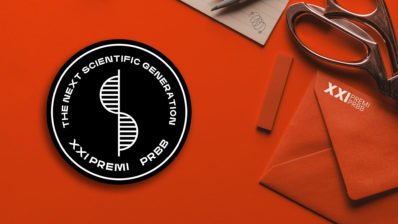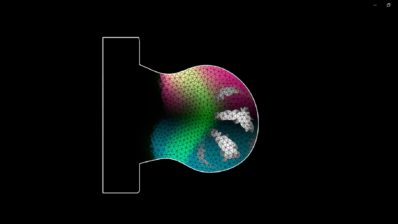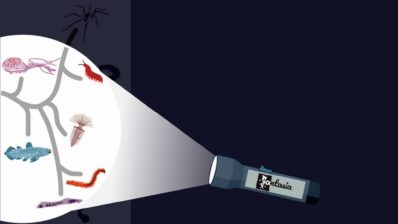It’s been a year since the TREC expedition, Traversing European Coastlines, was launched on the coast of northern France, with the aim of exploring Europe’s coastal ecosystems and better understanding how they adapt to the current challenges they face – both natural and human-induced. And in March this year, the expedition’s boat docked in Barcelona to collect samples from the Catalan coast and to disseminate the project.
“As a consequence of the way we live we are poisoning our ecosystems and reducing their resilience”
Paola Bertucci, Head of EMBL Scientific Expeditions
Led by the European Molecular Biology Laboratory – Barcelona (EMBL Barcelona), the Tara Ocean Foundation and the European Marine Biological Resource Centre (EMBRC), TREC involves 150 research teams from 21 European countries.
The scientific expedition
In its 42 stops across the European continent, water, sediment and near-shore land will be sampled to measure pollutants (antibiotics, hormones, pesticides, etc.) and properties of water and soil.
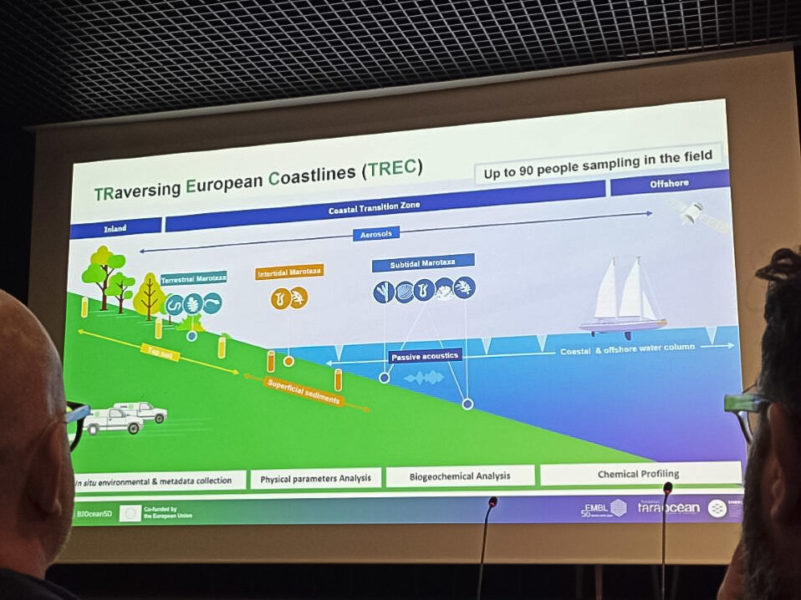
These samples will be collected in a standardised way so that they can be compared across Europe without being influenced by regional or national systems. This is a valuable feature of the project that underlines the importance of large-scale research. “Research has been very fragmented, localised: but we only have one sea, we need to globalise,” said Paola Bertucci, Head of EMBL Scientific Expeditions, at the project’s presentation in Barelona on 18 March at the Institute of Marine Sciences (ICM).
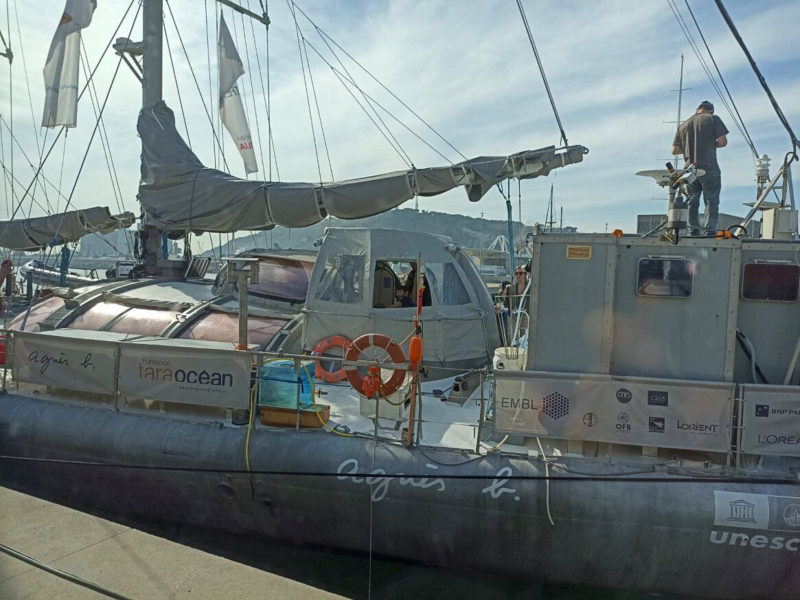
The expedition consists of a ship, TARA, and an Advanced Technology Lab, which only accompanies the ship on some of its stops, such as Barcelona and Bilbao, where it was last November. This truck is used to support the researchers, enabling them to carry out more complex analyses and to train local scientific staff with its advanced technologies. However, there are some smaller trucks, the Mobile Labs, which travel in parallel with the ship and allow outreach work to be carried out.
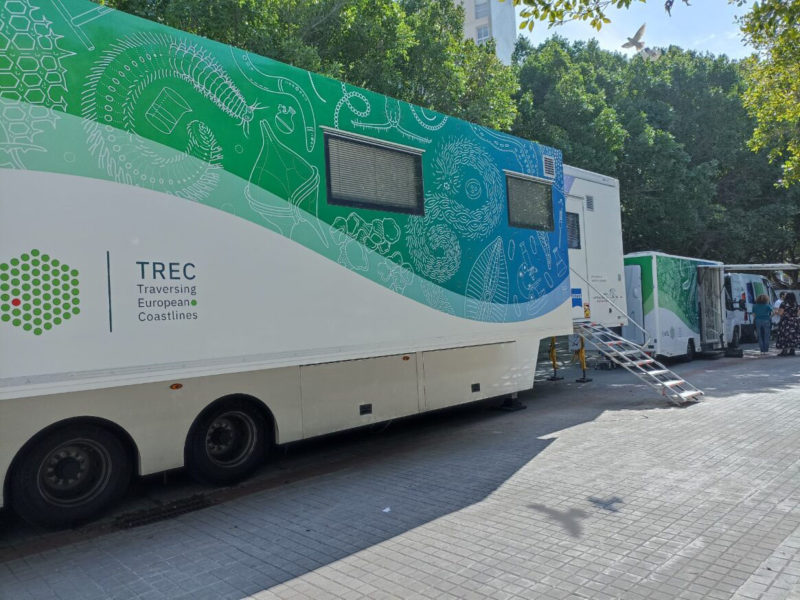
Catalan entities in TREC
The Institute for Evolutionary Biology (IBE: CSIC-UPF), the Institute of Marine Sciences (ICM) and the Institute of Environmental Assessment and Water Reserach (IDAEA) have joined TREC’s commitment to research and will accompany it during its stop in Barcelona.
As for IBE, the research group led by Javier del Campo will contribute to using TREC’s advanced equipment to study the coral holobiont. “We will use the imaging equipment on the TREC truck to test methodologies on some of our favourite corals,” explains the researcher. And Daniel Richter‘s team will prepare in the Advanced Technology Lab samples of abundant and little-known protists that will then be imaged.
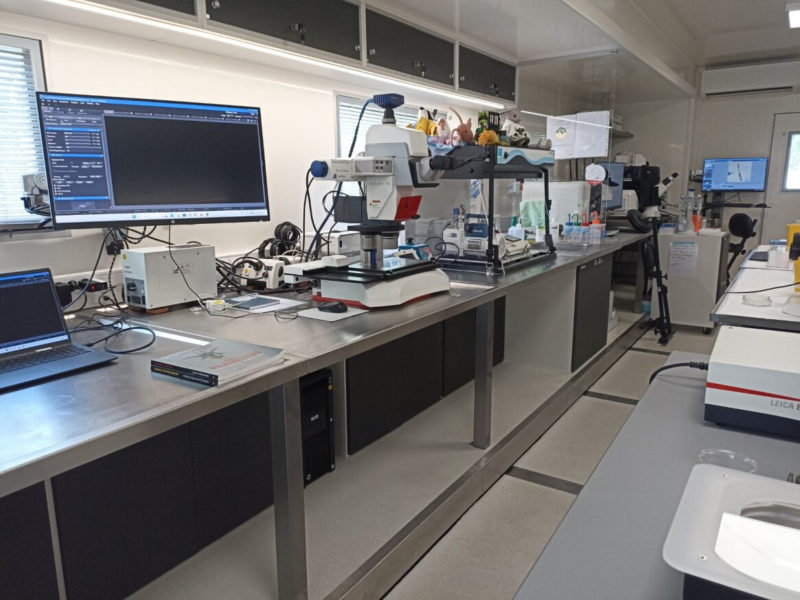
In addition, some of the researchers at IBE – as well as from other PRBB centres – will participate as volunteers in the outreach activities prepared. And Ricard Solé, a researcher at the Department of Medicine and Life Sciences (MELIS-UPF), participated in the talk “Tackling ecosystems tipping points with emergent bioengineering” on 18 March.
Take part in the TREC expedition!
In addition to TREC’s important research work, the project has a strong commitment to disseminating its work. For this reason, several free activities have been prepared during its stay in Barcelona.
- Guided tour of the EMBL Advanced Mobile Lab. 26/03/2024.
- Guided tour of the schooner Tara. 26, 29 and 30.03.2024.
- Science on Tour. An event where the European scientific community meets for a chat and discussion over a few pints. 27/03/2024.
- ‘Observing the Invisible Inhabitants of the Ocean!’ Workshop to discover the marine microbiome. 29 y 30/03/2024.
- Plastic at sea, the solutions are on land. Game to explore actions and solutions we can take on land to make a difference in the sea. 29 and 30/03/2024.
- Do you know Antarctica? Find out how we investigate the oceans and the world’s coldest continent. 29/03/2024.
Don’t miss these and other TREC activities!



